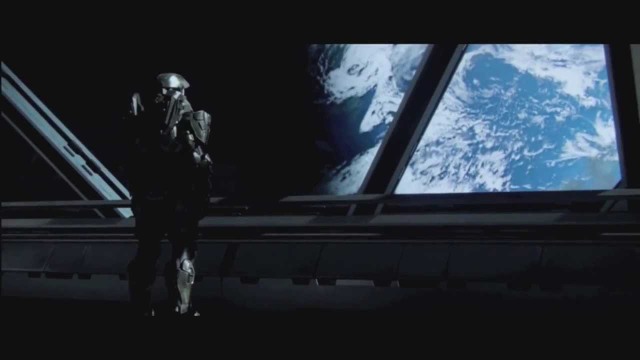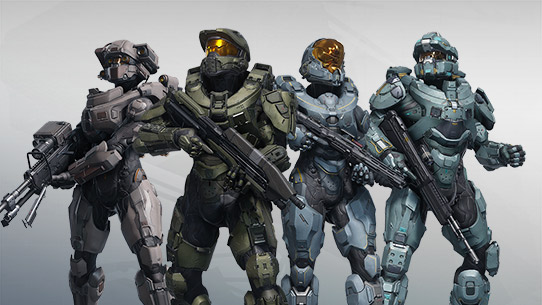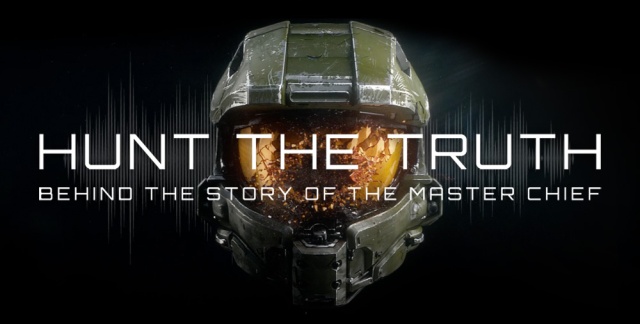Halo 5’s storytelling has not been received well. In fact some fans (including myself) have gone to great lengths to express their disappointment in hopes that 343i hears that outcry and will act accordingly.
But is 343i actually signaling that they take this criticism seriously?
With all of the bad press one would assume that the developer would at least like to comment on the situation. While 343i did indeed react, there is very little we can learn from what they had to say so far. There are only two reactions I am aware of.
Judgy Josh from The Critical Gist did an amazing job explaining the importance of character-driven storytelling and H5’s shortcomings in that regard. Brian Reed (343i’s narrative lead) let him know that he watched his video (see Youtube comments).
Frank O’Connor (343i’s franchise development director) gave TIME an interview which heavily focused on the editor’s storytelling criticism.
I’ve read that interview a couple of times now. And as a fan that really cares about Halo I simply can’t wrap my head around some of the things Mr. O’Connor says.
To make things worse the things he doesn’t say irritate me even more.
The title of the interview is ‘Halo‘s Frank O’Connor Reacts to Criticism of Halo 5’. Yet I find no critical self-reflection at all. Questioned about the criticism, TIME’s editor (Matt Peckham) only seemed to get vague or evasive answers (unfortunately he didn’t broach the subject again).
Master Chief – back to being a machine
In his review Peckham argues that H5 fails to evoke an emotional crises as most of it’s characters are too taciturn and that the concept of an empty vessel (i.e. projecting yourself into Chief) might not work anymore.
In the interview O’Connor responds by underlining that:
“[…] we certainly have got opinions contrary to yours, of people who enjoy that, and there are definitely Master Chief fans who’ve been literally asking for this.”
Frank O’Connor, TIME interview
Are there really? First of all projection processes are on a subconscious level. Some of the more hardcore fans certainly know about that discussion (empty vessel VS character with personality) but it’s pretty unlikely that someone would demand: “Please make Chief an empty vessel so that I can pour myself into that emotional black space!”
Most people aren’t even aware that there might be more to the design of Master Chief, for them he is most likely just another stereotypical, flat videogame protagonist.
What fans might actually ask for is to not mess around with Chief’s character (i.e. turn a stoic hero into a sentimental, talkative one).
But who would want that anyway?
I think that Peckham intuitively understood that things have changed over the years. We accompany Chief for 16 years now (at least four mainline Halo games) and carried out all kinds of heroic deeds in that time. Those superhero shoes are getting worn out and we’re asking ourselves if there is more to the character we care about.
The real issue is: You need good writing to subtly carve out nuances for a character like Chief or you end up with a lifeless brick or cliché. The most bizarre thing is that it was 343i who managed to do exactly that with Halo 4 – something the franchise director doesn’t seem to remember.
“But we’ve also got lot of other players who, maybe they’ve read the books, maybe they’ve just followed the games very closely, and they’ve projected their ideals about heroism onto the Chief, and actually given him far more personality than we ever have.”
Frank O’Connor, TIME interview
Halo 4 and even Halo 5’s marketing campaign was all about the humanization of Master Chief.

It still hurts me almost physically that this beautiful transformation warranted no more than a side note in Halo 5.
A band of brothers machines
“I don’t think any of [Chief’s] Blue Team have particularly strong personalities […] But when Chief’s with his team, there’s enough information coming that it does work as a kind of surrogate for Cortana’s absence, for her Virgil role where she’s leading you through the Inferno.”
Frank O’Connor, TIME interview
Blue Team is not a sufficient surrogate for Cortana because they only cover one part of what made the AI a great companion. Yes they give some context (mission objective etc.) but they lack charm and personality (e.g. sense of humor).
So is there really not more to these characters as O’Connor implies?
While Spartan II’s aren’t like ‘normal’ people (they’re soldiers through and through both psychologically and physically) it’s exactly this fact that also makes them interesting. As with the Master Chief himself the Halo games (except H4) simply weren’t interested in exploring the humanity of these characters.

What these characters however need is (again) good writing and something that works as a catalyst. For Master Chief it was Cortana who broke through his reserve and challenged him as a person. 343i could have used outside events (e.g. ONI coup, reappearance of Cortana) and subsequent conflicts to breathe some life into Blue Team.
They could have challenged their core values (loyalty to their Spartan family VS dutifulness as a soldier) or more often used third parties (Cortana, Osiris) as a contrast or to express what was previously implied.
H5 did far too little to establish Blue Team as interesting characters – reducing them to mission commentators is simply not enough.
When balance kills depth
In a separate section of the interview O’Connor is quoted as saying:
“We’ve got a lot of people who don’t care about the story,” says O’Connor. “We’ve got a lot of people who love playing campaigns but skip all the cinematics. We’ve got a lot of people who only play multiplayer. We have so many constituents to appease, that it’s always a careful balance and a fine line to walk.”
Frank O’Connor, TIME interview
I’m not disillusioned. I know that there are people who couldn’t care less about storytelling in general. But I’m also convinced that this group of people is a minority and that the core issue is not the lack of interest in storytelling per se but the quality of said storytelling in the Halo games. Probably people lose interest in your narrative because it’s too confusing (knowledge of EU required) or lacking depth (both emotionally and thematically)?
Apart from that the right answer to appease different interest groups is NOT to achieve a compromise (see the lessons learnt in multiplayer).
If you want to play PvE coop with your friends you don’t want narrative elements to get in the way (e.g. lengthy cinematics, complex audio files, lots of dialogue).
But good storytelling and immersing yourself into the world is incredibly important for a single player campaign in a series’ fifth main entry. Arguably it’s difficult to surprise players gameplay-wise without fundamentally changing the game’s core thus storytelling is getting more and more important.
With unlimited resources the right solution would be to have a specially tailored offer for everyone (e.g. tightly narrated campaign, SP/Coop PvE modes, competitive PvP mode, casual PvP mode). However we all know that in times of exploding development costs that is hardly realistic (at least at launch).
However trying to counteract by mixing modes together is a sure recipe for mediocrity. I say have the courage to limit your focus – but make what you have excellent. That above quote sounds to me like a franchise director not knowing what his own game should be about.
Misleading marketing – off-topic statement
Peckham also asks O’Connor about the game’s departure from the marketing campaign’s intimations but doesn’t get a straight answer. While the thematic mismatch between marketing and game never gets addressed O’Connor at least references the Hunt the Truth campaign:
“But I think one of the reasons our Hunt the Truth tie-in podcast worked so well, is that we’re using a fully established medium for telling stories. And I hate to say this because so much work goes into Hunt the Truth, but it’s easier than making a game. You can control what people are listening to in a radio play, taking then down a very linear process.”
Frank O’Connor, TIME interview
Again, what I’m missing here is critical self-reflection. What O’Connor says isn’t unreasonable it just seems to me like a convenient cop out.
Storytelling in videogames is hard, please understand!

But what about comparisons within the medium? Why was ‘Wolfenstein: The New Order’ praised for it’s storytelling while H5 was heavily criticized? There is even a Gamesradar article out that argues that ‘Halo 5’s narrative failings go deeper than gaming’s usual story stumbles’.
Halo 4 toyed with more mature themes and complex characters – but H5 couldn’t?
The problem is definitely not the medium.
Is 343i willing to learn from their mistakes?
Obviously we can’t know what goes on behind the scenes.
However what worries me is that I’ve noticed very little of what I would call problem awareness.
After the H4 multiplayer (gameplay) backlash 343i reacted: They got the Pro Team on board and actively communicated with the dedicated fan-base (Team Beyond etc.). They still went their own way (which is perfectly fine) however you clearly see the positive result of that learning process in H5.
Is storytelling as important for 343i? Simply based on the interview above, key departures (Chris Schlerf) and Halo’s ambivalent past I’m not so sure. 343i hasn’t really addressed the H5 – Hunt the Truth ambivalence that IGN described as “H5 ads lied to you”.
They didn’t address the storytelling criticism and they didn’t signal that storytelling was something that they want to focus on with H6.
I would really like to hear Brian Reed’s (343i’s lead writer) take on the situation. Let us not forget the importance of this issue as a whole as our attention shifts more towards the multiplayer side of things!
